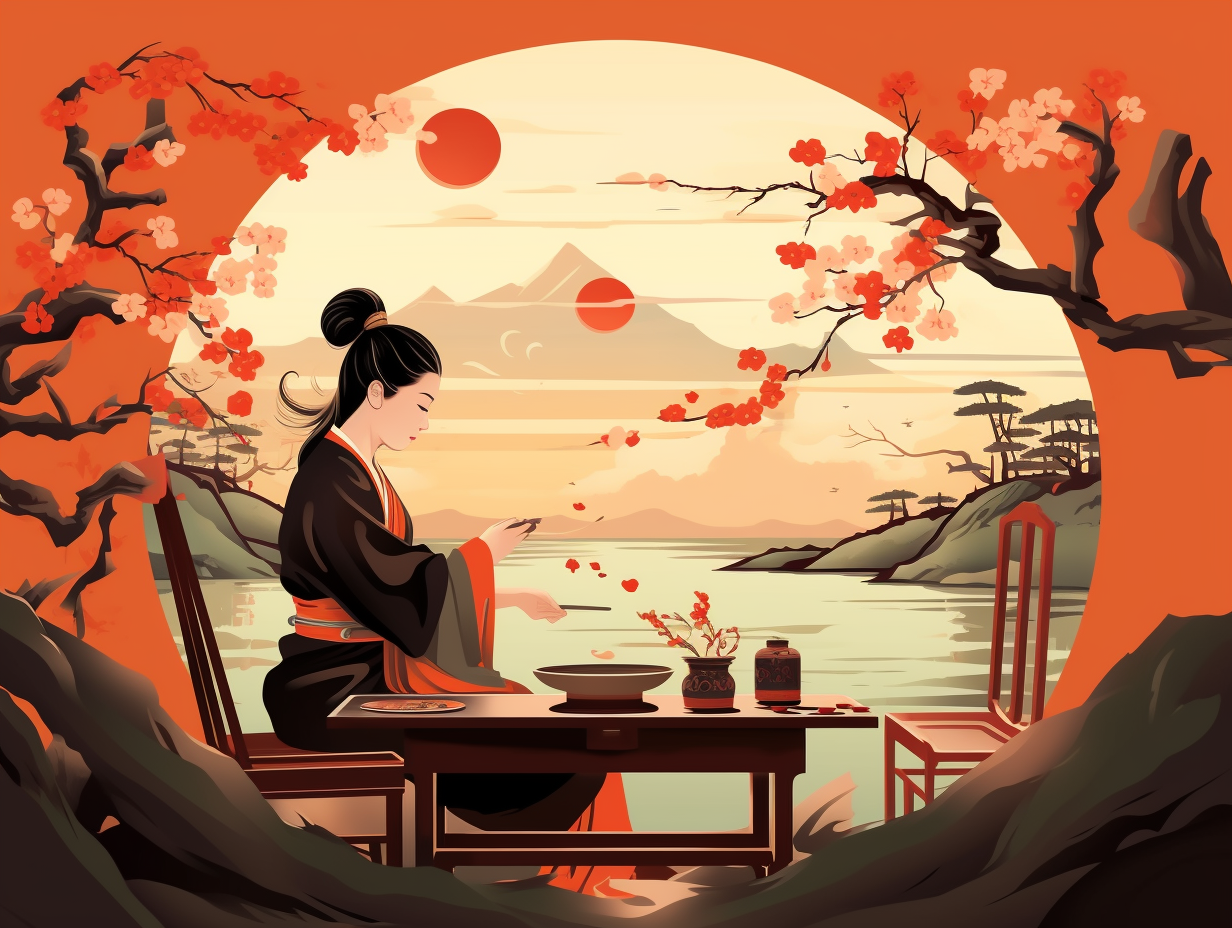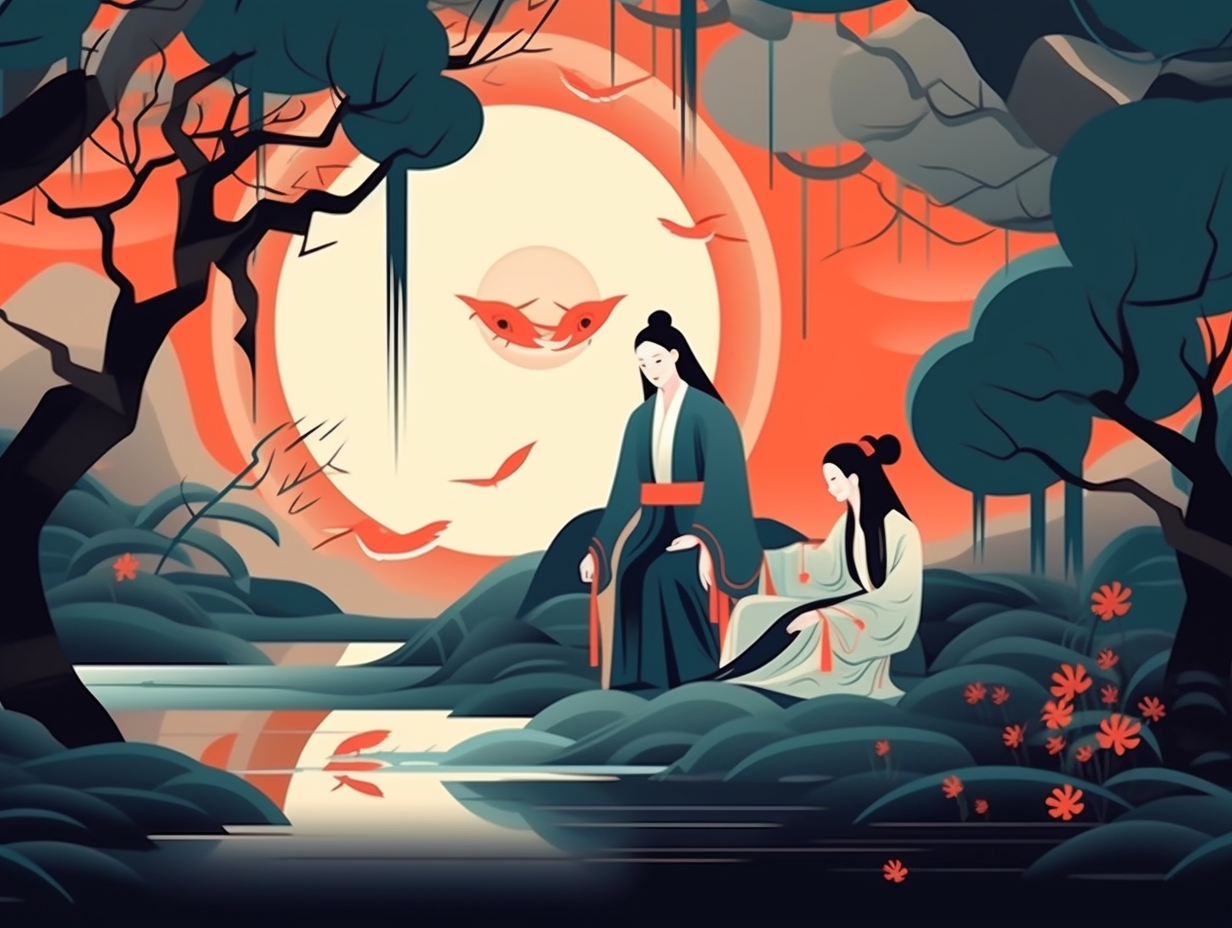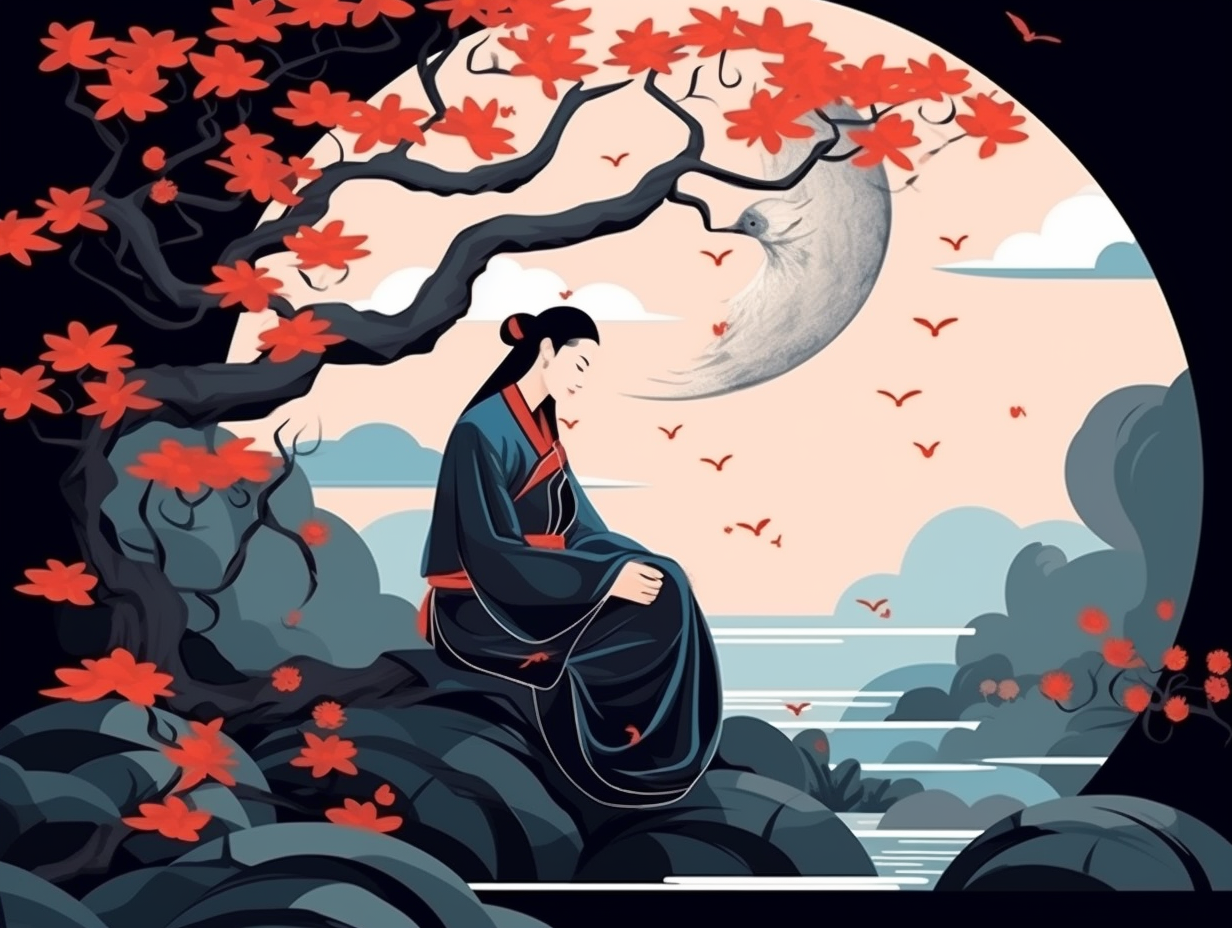Discover the Mystic World: Top 10 Fun Facts About Taoism You Never Knew!

1. Lemonade Lazy River
When life gives you lemons, Taoism says make a lazy river: The ancient practice of wu wei emphasizes non-action and spontaneity, mirroring the effortless flow of water that adapts to its surroundings and finds the best path without any forceful intervention.
Source => nationsonline.org
2. Kung Fu and the Taoist Sauce
When life hands you Yin, make some Yang: Taoism is the not-so-secret sauce that gives Kung Fu its kick, artfully balancing the soft and the hard to teach its students how to unleash their inner dragon – with perfect harmony between polar energies, a key ingredient to mastering their physical prowess.
Source => goldenlion.com.au

Did you know mindfulness meditation can actually make your 9-to-5 feel less rushed? Discover how it alters time perception and slows down the daily grind! 🧘♀️⏳
=> Fun Facts about Meditation
3. Yin-Yang Life Hack
Ever tried solving the world's problems while playing with a light switch? Yin and yang might just have the answer: Taoism teaches us about the principle of yin and yang, where two interdependent energies stem from a single source called the Tao, with yin being receptive, yielding, negative, and dark, while yang is creative, assertive, positive, and light - together, they create all of life's manifestations.
Source => pacificcollege.edu
4. Immortality Mix-Up: Hello Gunpowder!
In a twist straight out of a Chinese Brothers Grimm fairytale, Taoist wizards on their quest for immortality accidentally whipped up the world's first explosive: By tinkering with saltpeter, sulfur, and charcoal, these metaphysical mixologists cooked up gunpowder, which, rather than granting everlasting life, brought death and destruction in the form of cannons, bombs, and rockets to the realm of mortal men.
Source => wired.com

5. Winnie-the-Pooh, Taoist Master
Who would've thought that Winnie-the-Pooh could be the quintessential Taoist master, helping us find balance between honey pots and Piglet dilemmas: Enter The Tao of Pooh by Benjamin Hoff, where our beloved childhood characters provide simple and entertaining insights into Taoist principles such as the Empty Mind and Wu Wei, emphasizing intuition over aggression and the importance of living a natural, uncomplicated life for ultimate happiness and contentment.
Source => allencheng.com
6. Laozi's Unexpected Book Deal
Who would have thought an ancient airport security checkpoint could lead to the birth of a major philosophical text? When Laozi, the founder of Taoism, tried to slip away unnoticed to the western frontier of China, he had a surprise encounter with a diligent guard: The gatekeeper Yinxi spotted old Laozi and bartered a deal – Laozi could leave in peace, but only if he shared his wisdom for the nation’s benefit. And that’s how the mystical and paradoxical Tao Te Ching, one of the most influential texts in Chinese cosmogony, came to be written by Laozi himself, filled with thought-provoking ancient sayings and keen insights that would shape Chinese religious movements for centuries to come!
Source => en.wikipedia.org
7. Tai Chi: Yin-Yang Dance Party
If Yin and Yang had a dance party, Tai Chi would be their groovy DJ: This ancient practice, rooted in Taoist philosophy, represents the harmonious interplay between opposing yet complementing forces of nature – a fluid, stress-busting exercise that balances mind, body, and spirit.
Source => taoofmindfulness.com
8. Ancient Chinese Stalk-ing Method
Ever wonder how ancient Chinese fortune tellers became the original "stalk"ers? They mastered the art of divination with a bundle of yarrow stalks and lots of patience: In Taoist tradition, the I Ching divination text uses 64 hexagrams created by randomly manipulating these stalks, producing sets of six numbers that correspond to different readings. This has sparked centuries of debate and discussion, with the I Ching being used for moral decision-making in philosophical traditions like Confucianism, Taoism, and Buddhism. No stalk, no gain!
Source => en.wikipedia.org
9. Yellow Emperor's Cultural Touchdown
Before the days of helmets and shoulder pads, the Yellow Emperor had his own Super Bowl showdown, sans the halftime show: As a legendary figure in Chinese history, the Yellow Emperor is credited with the invention of an early form of football, the lunar calendar, and early writing systems, making him a crucial character in the development of Taoism and Chinese culture.
Source => en.wikipedia.org

10. Zhuangzi's Taoist Rap Battles
In a world where ancient philosophers duked it out in epic rap battles of history, Taoism had its very own word-slinging gangster: Enter the humorous, whimsical, and thought-provoking world of Zhuangzi: A 4th and 3rd century CE Chinese philosopher, famous for his eponymous book filled with entertaining sketches and essays on Taoism, often featuring imaginary verbal throwdowns between Laozi and Confucius.
Source => study.com








